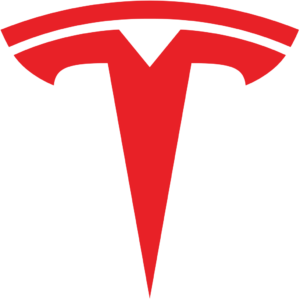In his April 29, 2020 Autoline Daily show, John McElroy, the brilliant reporter of all things Detroit and the globe’s auto industry, made the suggestion that in view of their individual current crises, Ford, GM, and the US divisions of FCA (Jeep and Dodge/RAM) combine their powertrain divisions to save money. I sent John the following letter in response.
John:
I enjoyed your show today, as usual, and I found your suggestion for the Big 3 to combine their powertrain operations very interesting. In business-as-usual times with no other technological and new business model forces prevailing it has many merits.
You certainly had the view of the traditional US auto buyer nailed. In most cases, they couldn’t care less what engine is under the good, or how many speeds their automatic transmission has, as long as the engine starts reliably and the car moves forward with reasonable economy and no oil leaks.
As much as your proposal has cost saving merits in view of the above consumer thinking, I think there are a few problems with it.
If (and that’s a big word) Ford, GM, and FCA could be sold on your idea and agreed to it, it would take at least a year (more like 2 years at the pace Detroit moves) to form the corporate structure, put the management team in place, and come up with a plan to rationalize engines, transmissions, and manufacturing plants. This reorganization would employ every lawyer in the country not currently working for or against Trump. It would be an ugly and torturous process filled with much politics and in-fighting among its brand proponents. Many plants would be shut down and many people would be laid off, a huge PR problem for the parent companies. I am not aware of a leader in Detroit with the respect and muscle to knock heads and get this done quickly — maybe only Bob Lutz, in his prime, and in his Superman garb!
However, if this could be accomplished it would free up funds Detroit desperately needs to make the conversion to battery-powered electric vehicles. They are 5 to 10 years behind Tesla and every dollar and minute counts in their race for survival in the global marketplace. Tesla has just been joined in the advanced EV marketplace by China’s Xpeng P7 sedan announced this week. Why couldn’t that vehicle have come out of Detroit? Aarrgghhhh!
Powertrains are the corporate identifier for the auto companies – the backbone of their corporate culture – Chevy’s small block, Ford’s Windsor 351, Chrysler’s hemi. With a common set of powertrains, how would each manufacturer’s vehicle brands differentiate themselves? They would be reduced to exterior styling, ride and handling, interiors, and electronic features. Then the question becomes: “Why stop at powertrains”?
Why not rationalize brands and models and save even more? In the end, why not merge Ford, GM, and the US divisions of FCA (Jeep and Dodge/RAM). Your logic is so compelling (and I am not being sarcastic here), why not just go for a clean sweep – – the standard American internal combustion engine-powered automobile and/or pickup – Henry Ford’s 21st century dream – the new American Model T. Surely that would be the least expensive and most rational way to proceed. Surely too that would be the traditional automakers’ last gasp.
The simple answer is that as bold and logical as your proposal is, it is simply a decade too late, even if it were to be adopted. By the time the “Detroit Powertrain Company” gets itself organized, rationalized, and trimmed down to keep producing one internal combustion engine-based product line and range of automatic/CVT transmissions, ICE-powered vehicles will no longer be economically viable, from any organization. The US and world will only be buying battery-powered EVs.
Indeed as Bob Galyen gave several examples of on your Autoline After Hours show last week, the whole world is going electric now – cars, pickups, Class 8 semis, busses, construction machines such as power shovels and backhoes, trash removal trucks, boats and ships, and even airplanes!
So, Detroit seems to be slowly awakening to the fact that their electric vehicle and car-as-a-computer efforts are too little too late. History is replete with outdated industry players slowly consolidating themselves to death – 6 players, 4, 2, 1, and then none. Books will be written on Detroit’s ICE-powered industry’s agonizing last decade.
It didn’t have to be this way.
PS: The timing of John’s proposal and my response is ironic, given that these two events occurred in the middle of my “Detroit’s Big 3 on the Precipice…..Again” blog series.
Photo courtesy Pixabay
Your feedback in the form of comments or suggestions are welcome in the comment window. Thank you for following my blogs on this site and for participating in my blogging community.




